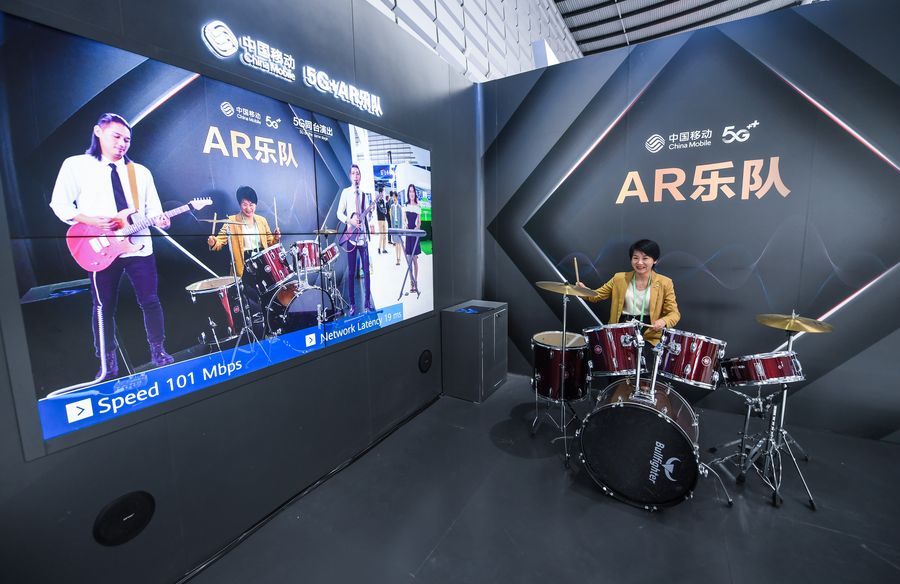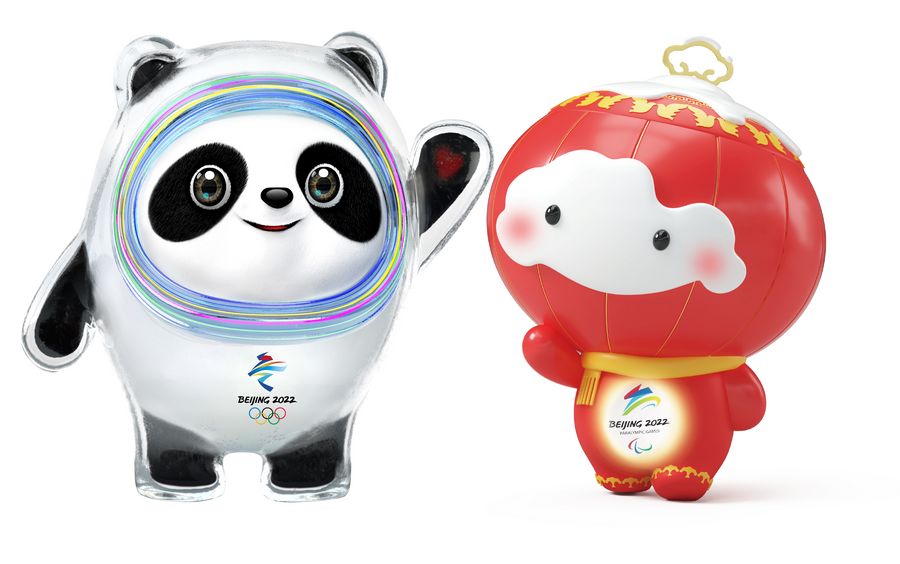
A remote AR band based on the 5G technology is displayed during the Light of Internet Expo in Wuzhen, east China's Zhejiang Province, Oct. 18, 2019. (Xinhua/Xu Yu)
China releases media buzzwords in 2019. Among the list are "nighttime economy," "epoch-making year of 5G," "apple-polishing chat group," "Bing Dwen Dwen and Shuey Rhon Rhon," "bucolic brands" and "pig-butchering scam."
BEIJING, Dec. 17 (Xinhua) -- China's National Language Resources Monitoring and Research Center unveiled the top 10 media buzzwords in 2019.
The buzzwords together encapsulate new phenomena and changes over the past year, according to the center.
Among the list are "nighttime economy," "epoch-making year of 5G," "apple-polishing chat group," "Bing Dwen Dwen and Shuey Rhon Rhon," "bucolic brands" and "pig-butchering scam."
The top 10 words and expressions were selected by an algorithm based on a corpus of 1 billion Chinese characters collected from publications of nine print media outlets, 20 broadcasting or television stations and four news websites between Jan. 1 and Nov. 30, 2019, said the center, adding that the final results were confirmed by its staff.
These words represent the focus and linguistic characteristics of Chinese mainstream media outlets, the organization noted.
Here are some of the buzzwords:

People visit Yuyuan Garden ancient road in the evening in Shanghai, east China, Oct. 27, 2019. In recent years, Shanghai has taken many measures to boost its nighttime economy, including opening night cultural clubs, updating landscape lighting, prolonging operation time of subways, and offering night tour in museums. (Xinhua/Liu Ying)
-- "Ye jingji" or "nighttime economy"
"Nighttime economy" refers to business activities in the service sector between 6:00 p.m. and the next morning. Tapping into the potential of consumption on shopping, catering and entertaining activities during the evening, the nighttime economy has been injecting new vitalities to China's economic growth over the past year.
-- "5G yuannian" or "epoch-making year for 5G"
The year 2019 was an epoch-making year for 5G technology as it witnessed three leading Chinese telecommunications operators grant licenses for commercial use of the technology, the commission of 86,000 5G base stations, the testing of 20 models of 5G mobile phones and the launching of monthly 5G service packages by Chinese mobile operators.
-- "Jiesu jiban" or "handling a complaint upon receipt"
The phrase refers to a new policy rolled out by the Beijing municipal people's government to improve the service for people's livelihood at the primary level.
-- "Kuakua qun" or "apple-polishing chat group"
This is a controversial social-media-born expression paraphrased as "apple-polishing chat group." WeChat users in such chat groups can pay for overwhelming compliments and praise as a way to boost their self-confidence.
-- "Jiceng jianfu nian" or "the year to alleviate burdens on primary-level authorities"
The Chinese leadership named 2019 as "the year to alleviate burdens on primary-level authorities" in a national circular issued in early 2019, aiming to cut down some formalities and invigorate officials at the primary level.

This handout image shows the mascot of Beijing 2022 Olympic Winter Games Bing Dwen Dwen (L), and the mascot of Beijing 2022 Paralympic Winter Games Shuey Rhon Rhon, unveiled by Beijing Organising Committee for the 2022 Olympic and Paralympic Winter Games in Beijing, capital of China, Sept. 17, 2019. (Xinhua)
-- "Bing Dwen Dwen and Shuey Rhon Rhon"
These are the names of the mascots for the 2022 Beijing Olympic and Paralympic Winter Games. They are portrayed as a chubby giant panda and a red-lantern-image baby, respectively.
-- "Xiang zi hao" or "bucolic brands"
The buzzword "bucolic brands" stems from a government initiative aiming to foster brands for agricultural products or services amid efforts to advance the rural vitalization strategy.
-- "Shazhu pan" or "pig-butchering scam"
"Pig-butchering scam" is used for a new type of online fraud in which scammers attempt to win the trust of victims through a romantic relationship before tricking them into a gambling or financing trap. The expression derives its name from how a butcher slaughters a pig after it is fattened. ■



